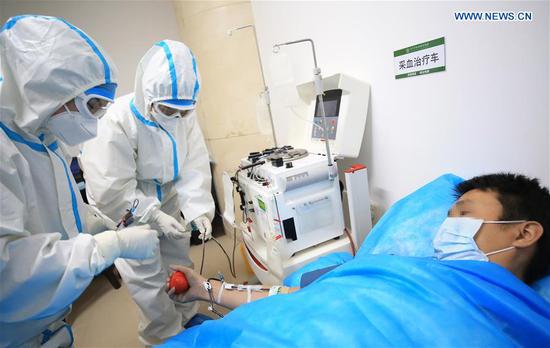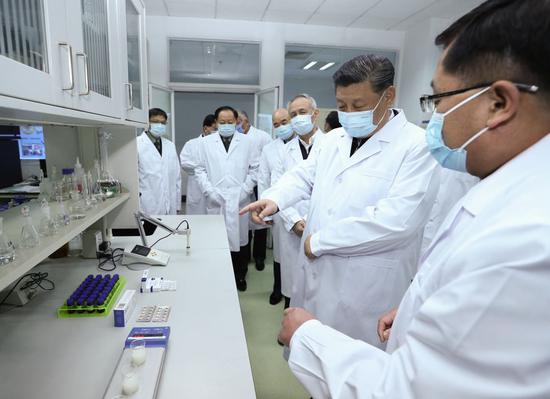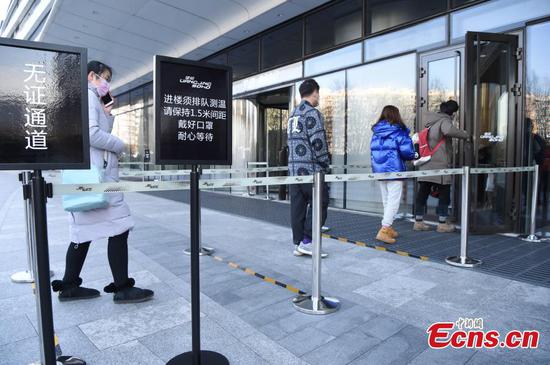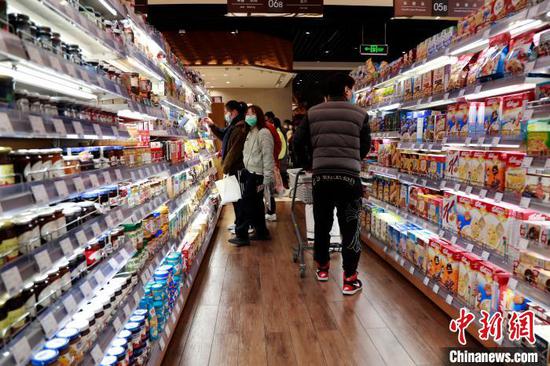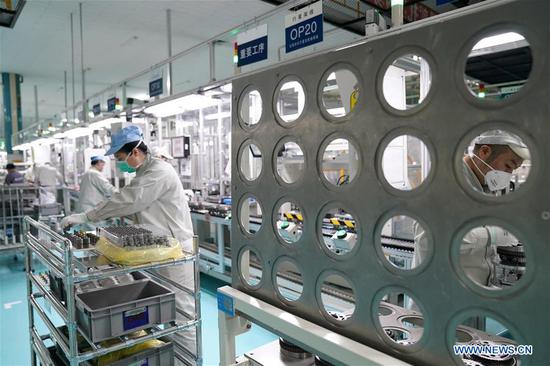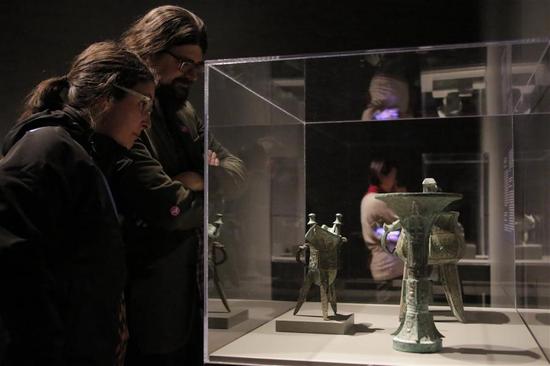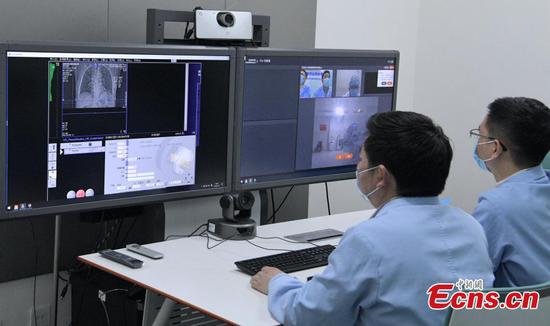British Prime Minister Boris Johnson promised to "drive a hard bargain" in efforts to secure a post-Brexit free-trade deal with the United States, as the government outlined its objectives for negotiations due to start later this month.
The British Department for International Trade, or DIT, said on Sunday it expects that greater trade opportunities with the U.S. could boost the United Kingdom's economy by $4.3 billion and increase trade flows between the nations by $19.5 billion.
In a statement, the DIT said that manufacturers of ceramics, cars and food and drinks, and professionals such as architects and lawyers, were among the industries and professions that the UK government expected to be the "biggest winners "from a deal with U.S. President Donald Trump's administration.
It said the negotiating objectives set out that any future agreement must protect the United Kingdom's treasured National Health Service and uphold high standards on food safety and animal welfare.
The agreement will also include a chapter on digital trade, to maximize opportunities for businesses to trade digitally across the Atlantic Ocean. Officials say UK exporters and investors could secure greater access to U.S. markets, with fewer tariffs and less paperwork.
On the UK side, the talks will be overseen by Crawford Falconer, the DIT's chief trade negotiation adviser, formerly New Zealand's chief negotiator and ambassador to the World Trade Organization.
Britain's ambition for its own trade deal with the U.S. is part of its strategy to restructure economically after having left the European Union in January. It comes at the same time as the UK and the EU open post-Brexit negotiations over their trading partnership.
"We have the best negotiators in the business and, ... we're going to drive a hard bargain to boost British industry," Johnson said. "Most importantly, this transatlantic trade deal will reflect the unique closeness of our two great nations."
However, there are concerns a trade deal could allow U.S. pharmaceutical companies to gain access to NHS drug supplies, massively increasing prices, and that standards in areas from food to workers' rights could be undermined.
Campaigners fear the UK may struggle in talks with Trump's administration, which has taken a tough negotiating stance with China, the EU, Canada and Mexico.
"The government should be focused on getting a good trade deal with the EU-not cozying up to Donald Trump," said trade union leader Frances O'Grady. "Nobody voted for chlorinated chicken or for U.S. corporations to have more access to our personal data."
Carolyn Fairbairn, director-general of the Confederation of British Industry, said securing a good trade deal with the U.S. was vital to help create jobs and increase investment.
She said the government had "encouraging" plans to push for greater migration opportunities for skilled U.S. and UK workers to move between the two countries.
Adam Marshall, director-general of the British Chambers of Commerce, said companies were "enthusiastic" about new trade opportunities, but that the main priority was a strong trade agreement with the EU.










